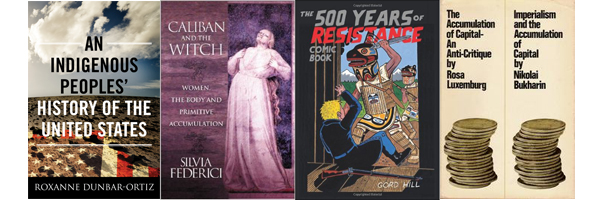
Why Read? Holding education and discussion groups as organizing strategy: By Natalie Knight
 This week Alliance Against Displacement (AAD) begins our third Conditions of Struggle education series. We begin this education and discussion group in the midst of a lot of on-the-ground organizing work. So far this year, we have mobilized with Metrotown residents to oppose the City of Burnaby’s demoviction plans for the neighbourhood, organized with Maple Ridge homeless residents in our Homes Not Hate campaign, caravanned to Victoria to support Super InTent City, held a regional summit with homeless communities and precarious renters, and begun organizing with residents of Surrey’s Strip, who face police and bylaw harassment every day, fighting to protect their belongings against the City that openly steals them.
This week Alliance Against Displacement (AAD) begins our third Conditions of Struggle education series. We begin this education and discussion group in the midst of a lot of on-the-ground organizing work. So far this year, we have mobilized with Metrotown residents to oppose the City of Burnaby’s demoviction plans for the neighbourhood, organized with Maple Ridge homeless residents in our Homes Not Hate campaign, caravanned to Victoria to support Super InTent City, held a regional summit with homeless communities and precarious renters, and begun organizing with residents of Surrey’s Strip, who face police and bylaw harassment every day, fighting to protect their belongings against the City that openly steals them.
So why read? When there is so much urgent work to do with communities facing displacement, why begin a project oriented around reading, discussion, and reflection?
During visioning sessions over the past three years we have agreed that we are more than a campaign group. We learn best through action, but responding to crisis after crisis can turn us into firefighters, hooked on the intensity and break-neck pace of the next campaign. While the day-in-day-out work of organizing, like door-knocking and organizing press conferences, rallies, and marches certainly educates us in many important ways, this task-oriented work doesn’t always develop our analysis or break down our ignorance and miseducation. AAD believes we can deepen the lessons of our actions when they are coupled with reflection, conversation, debate, and imagining.
AAD has responded to this problem – the tension between urgent crisis and the necessary time needed for collective reflection – with an intentional education and discussion group called Conditions of Struggle. We believe that reading and discussion groups are useful tools in the organizing of groups that oppose the material, cultural, and social effects of neoliberalism. Education should not be sequestered to the university. We do not believe we need experts to educate us.
In 2014 and 2015, we held a Conditions of Struggle series on Black radicalisms & resistance and another on the causes and social effects of austerity. We chose these topics to respond to contemporary struggles, crises, and movements that AAD sees as unavoidably intertwined with our own struggle against displacement.
This Thursday, we begin our third Conditions of Struggle series. The theme for this series is the relationship between displacement and dispossession. We decided on this topic because the forces of displacement (capitalism) are interwoven with the forces of dispossession (colonialism). No matter who we are, as people living in British Columbia in the 21st century, our personal and social lives are formed in the context of capitalism and colonialism. Our relationships to these forces vary, however, and so this Conditions of Struggle series hopes to work out some of the ways in which we stand in solidarity with each other – even as our classed, raced, and gendered positions also mean that we bring different relationships and different struggles to the table.
We meet bi-weekly, with reading material prepared by AAD that varies in accessibility, from comic books and popular news articles, to theoretical and philosophical material. Members and friends of AAD are always welcome to join whether or not they’ve read the articles; the priority is learning through collective discussion and reflection. We aim for intimate groups of about 10-15 participants, and find that this size is most supportive of conversation and learning. Our website hosts all of the readings for the series to date because we want to share our work with other groups who are interested in learning alongside us.
If you are interested in joining the Conditions of Struggle education series, get in touch with AAD organizers at organize@stopdisplacement.ca. And if you would like help in starting a Conditions of Struggle or similar reading and discussion series in your area, contact us and we can offer some pointers on how to get started. Visit our Conditions of Struggle page to learn more.
